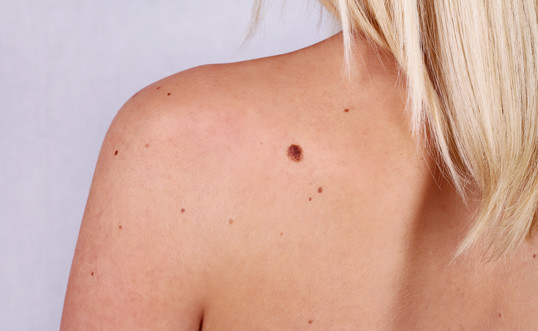Expert advice on problem skin conditions
Date: 11/09/2017
For most people, how their skin looks and feels is incredibly important, and whether it’s a small acne breakout or something more serious, any problem can have an enormous impact on confidence and self-esteem. The branch of medicine that focuses on the diagnosis and treatment of skin conditions is known as dermatology. It’s a wide-ranging speciality, and in addition to treating everything from acne and athlete’s foot to mole screening and cancer, dermatologists also look after nails and hair.
September 16th to 24th is National Eczema Week, an initiative that provides support to people affected by eczema, so we thought that now’s the time to highlight the work of Spencer Private Hospitals’ Dermatology Department. We have three consultant dermatologists, and their dedication and knowledge is unrivalled. They have expertise in everything from rashes and blemishes to treating complex cancers and children with severe skin conditions.
So whether you’re bothered by a skin tag, want to get rid of an irritating wart, or have more serious concerns about a skin-based issue, please get in touch and ask for an appointment with one of our consultants.
What’s your question?
- What are the most common skin complaints?
- How can I learn to live with my skin condition?
- What should I do to look after my skin?
- How do I make an appointment to see a dermatologist?
What are the most common skin complaints?
Skin complaints can appear at any time in our lives, and vary in the problems they cause. These are the most common:
- Eczema (also known as dermatitis) is a dry skin condition which comes in many different forms, and is most common in children. Medical moisturisers are key to its management, while topical steroids may be used to control flare-ups.
- Skin tags are usually harmless, but many people choose to remove them if they are on an exposed part of the body.
- Warts are a common ailment and take the form of a rough lump. They are contagious and thrive in wet areas, and are usually transferred by touch or contact with contaminated areas.
- Fungal nails are not usually harmful, but can be uncomfortable as the nail becomes stained, thickened and misshaped.
- Spots and acne can be distressing, especially for teenagers. The best remedy is regular washing, the use of a good over-the-counter treatment, and a healthy diet. However, later in life you might develop cysts that appear as spots. Your dermatologist can remove these with a simple procedure.
- Hives develop as bumps or welts, and are usually caused by an allergic reaction which can lead to breathing difficulties. If they suddenly appear in large numbers and you find yourself short of breath, call 999 immediately. The best thing you can do to avoid hives is to be mindful of allergic triggers, so speak to one of our dermatologists to ensure you are aware of yours.
- Spider naevi is a blemish that looks like a spider, and shows up on the surface of the skin. It might be an indication of a hidden illness, but they can also appear in healthy people.
- Solar comedones emerge on the skin – especially the cheeks – of the elderly and middle-aged. They are caused by exposure to daylight over an extended period, and can be painful.
- Moles are also known as beauty spots. Some are present at birth, others develop during childhood, and are usually harmless. However, we recommend you keep an eye on their appearance. If you notice any changes, see your dermatologist as soon as possible, for this could be a sign of cancer.
- Athlete’s foot is a fungal infection, is passed on in moist areas, and causes itching and cracked skin.
How can I learn to live with my skin condition?
Many skin complaints have more than physical implications – they can affect you psychologically, and have a big impact on the way you live your life. The stigma attached to some conditions can be overwhelming, and whether it’s at work, in a social setting or on holiday, people who don’t understand can react negatively.
Our dermatologists understand the problems, and are trained to help you overcome any issues you might face. So if you have a condition that responds slowly to treatment, we can offer the support you need. We’ll also encourage you to do as much research as possible, because knowledge breeds confidence and self-reliance.
What should I do to look after my skin?
There are a number of things you can do to keep your skin healthy. Most of these are simple, preventive measures.
- Protect yourself from the sun. UV rays age skin and can cause cancer, so wear a wide-brimmed hat and apply sunscreen with a protection factor of at least 15 to any exposed areas.
- Give up smoking. In addition to causing all sorts of medical problems, it also ages skin and reduces its strength and elasticity.
- Watch your alcohol intake. Alcohol dehydrates skin, leaving it looking tired and grey. So always drink plenty of water when you’re enjoying alcohol, and try not to consume more than 14 units a week.
- Develop a healthy washing regime. Our skin produces natural oils – too much washing can remove these, so always use a mild cleanser. Moisturisers can help prevent skin from drying out, but choose yours carefully – alcohol-based products can irritate dry skin, and people with oily skin should only use water-based products.
How do I make an appointment to see a dermatologist?
Spencer Private Hospitals have built a reputation for providing gold standard private healthcare services in East Kent, so if you or your doctor thinks you should make an appointment to see a specialist dermatologist, our team is ready to take your call.
We have a 22 bed hospital in Margate and a consulting suite in Ashford, and both facilities are ready to help you gain radiant skin health. To make an appointment with one of our specialists in Margate, please call 01843 234 555, or if you’d prefer to visit us in Ashford, call 01233 616 201. You can also email us using the enquiry form on our contact page. We look forward to hearing from you.

